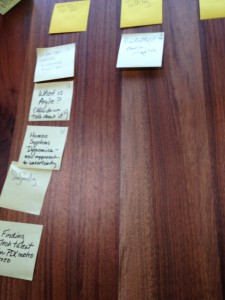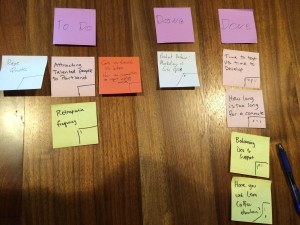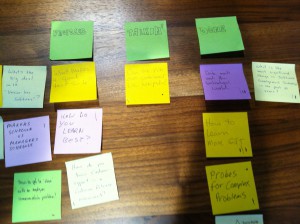
Special Thanks to Dan for creating these notes.
Meetings/punctuality/etiquette
– Meetings need to have a purpose/agenda
– some cultures punish tardiness, could be shaming, could be financial
– Some cultures treat being overbooked as a sign of status
Use of automation/macros
– machine setup
– machine activities (shutdown at a certain time, etc)
– tech support (standard text responses)
– how much do you customize your environment?
What is Agile?
Definition proposed was about helping teams work faster, we disagreed with that but couldn’t stabilize on what it is
Human Systems Dynamics
– Method of managing interaction between people
– know what you know, what you can potentially know, what you can’t know
– US Navy submarine control room anecdote: Discussions happen in public, everybody participates, Captain makes a decision
– All information is visible to everybody in the discussion
– No holding back
– Helps bring new people up to speed
– Helps spread institutional knowledge
Dogfooding
– Is it useful? Can be if the people dogfooding the product are the ones who build it
– Can show confidence in your product
Finding Tech talent in PDX
– Not enough talent
– Paying relocation costs to bring in talent can be a sticking point
– People outside of the PDX area don’t necessarily know what the job market is like in PDX
– People churning around locally costs everybody time and money





